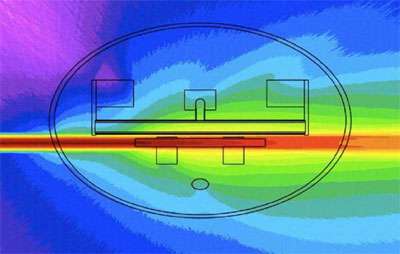Researchers create much-needed medical isotopes

No one likes to see leftovers go to waste, and especially not nuclear physicists. Now the National Physical Laboratory (NPL) is helping to get the recipe right. The Radioactivity Group at NPL is supporting the nuclear physics facility at CERN with a new project to redesign the beam dump so that the 'wasted' protons can be used for manufacturing radiopharmaceuticals for diagnostic imaging.
Great effort goes into generating the rare isotopes that are the focus of research at CERN's world-leading ISOLDE nuclear physics facility, but only about 10 % of the proton beam is stopped by the target, leaving 90 % to be absorbed by a beam dump. To the ISOLDE nuclear physicists, this seemed like a terrible waste, particularly as there is a widespread shortage of medical isotopes to diagnose and treat diseases.
The MEDICIS project, which was first announced in 2012, will make radioisotopes for medical applications by utilising these unused protons. An additional target downstream of the first target, allows isotopes to be generated without interrupting the experimental schedule.
Initially, the facility will produce small batches of radioisotopes for research at institutions local to CERN, including two university hospitals and the cancer research institute at the École Polytechnique Fédérale de Lausanne, although there is a view of expanding to create a larger world-wide network of laboratories. The ISOLDE collaboration has already completed test collections of isotopes and shipped them to the university hospital in Lausanne.
NPL will be helping MEDICIS meet the Good Manufacturing Practice (GMP) criteria. GMP is the minimum standard that medicines manufacturers must meet in their production processes. Any new product must undergo clinical trials and toxicology studies to demonstrate that every manufactured batch will be consistent with the samples used in clinical trials.
NPL will be contributing reference materials and calibration sources, loaning equipment, and providing expertise to help with radiochemical separation and calibration.
Steven Judge, Group Leader of NPL's Radioactivity team, said:
"It's a really interesting project. We're keen to contribute to the issue of medical isotope production to support the growth in the use of these isotopes for diagnostic studies and for cancer therapy.
"We'll also be helping MEDICIS with the measurement protocols and compliance documentation for the isotopes. I'm very excited to be working with CERN; NPL's mission is to enable accurate measurement and MEDICIS fits very well with our mission."
Provided by National Physical Laboratory



















